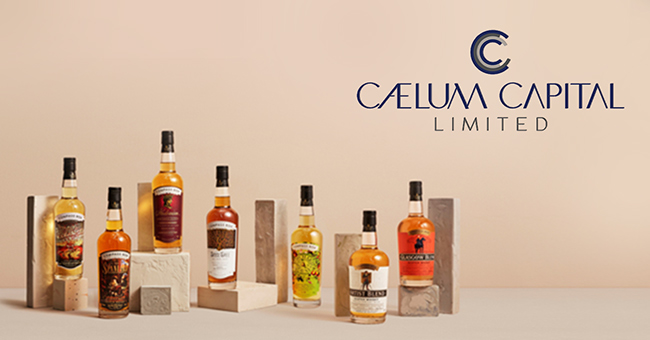
In early May, beverage specialist investor Cælum Capital Limited announced it acquired a majority stake in London’s Compass Box, the scotch whisky brand founded by John Glaser, an industry veteran and disrupter known for his innovation – and for getting in trouble with the Scotch Whisky Association. After over two decades, CompassBox has earned a name for itself through frequent releases of blended malts and a campaign aimed at encouraging transparency in whisky spirits. That’s the exact kind of innovation and passion Manish Rungta, the founder and managing partner of Cælum Capital Limited, is looking for.
“This is a gentleman that came from the U.S. to the U.K. and he’s actually made his mark within a very traditional and long-standing industry as an American and brought new ideas and new ways of thinking within the industry,” said Rungta. “It’s a very American success story.”
Rungta, a former Diageo executive with a background in private equity, founded Cælum Capital Limited towards the end of 2020 seeking to provide hands-on investments for beverage companies in North America and Europe. In his previous role he was managing director at Duet Private Equity, a London-based middle market private equity firm with significant focus on the beverage sector. As part of Diageo London, Rungta led acquisitions, disposals, and negotiated third party distribution agreements and strategic joint ventures.
His partner, Mark Eames, has spent 25 years specializing in beverage company consulting: he lead a management consulting firm focused on strategic planning and operational improvements for beverage businesses, and previously held senior roles at SAB Miller, a multinational brewing and beverage company acquired by Anheuser-Busch InBev in 2016.
A roster of industry advisors bring executive experience from major players such as Bacardi, Diageo, and Southern Wine & Spirits. CompassBox is the investor’s first addition to the portfolio.
For Rungta, Cælum Capital came after noticing a gap in the market between early stage venture capital investments and the large scale money that comes once a brand reaches a critical mass and becomes attractive to larger conglomerates.
“There’s this interesting in-between when it’s not a startup, it’s a scale-up,” he said, adding that when businesses get into the $10 to $20 million revenue size, capital plus strategic intervention from advisors who have trained in large corporations can take a business to the next level.
That’s the goal with the Compass Box deal, of which financial terms were not disclosed. Rungta is focused on only majority-controlled investments with strategic intervention, describing the firm’s role as active management versus providing a passive investment.
Cælum will grow the Compass Box team and has brought in Maurice Doyle as the new CEO. Doyle spent over 20 years at Bacardi, and was previously the chief marketing officer of scotch whisky maker William Grant & Sons. The team’s focus will be to strengthen the balance sheet of the company, acquire inventory, and build production facilities.
Compass Box met all the criteria of Cælum’s investment targets, which look towards spirits in emerging markets. “We are ideally invested in products which are made difficult to replicate,” said Rungta, emphasizing his interest in the unique selling point of the product itself, not just the brand or packaging.
Part of the attraction was Compass Box’s creative spin on a historic spirit— the unconventional blends with an artistic bent have earned awards and a reputation for Glaser as a pioneer. Glaser, who was previously Marketing Director for Jonnie Walker in London, made trade headlines in 2016 when he broke the law by disclosing the precise ingredients of two of his whiskies, and subsequently lobbied for changes to UK and European Union transparency laws, which only allow for disclosing the youngest component of any spirit product.
“It has a very unique position within the entire industry in that it’s one of the innovation leaders within this massive segment,” said Rungta.
Cælum is particularly interested in brown spirits because of the extensive maturation process which can create barriers to entry. Scotch whisky surged in 2019, and whisky’s premiumization is on the rise, according to the Distilled Spirits Council of the U.S.
A proven product is also essential, for Cælum, which looks for sales revenue ranging from $10 to $50 million. Investment sizes will range from $50 to $200 million. While Rungta envisions working alongside the founders of invested companies, he’s aiming to meet entrepreneurs when they are ready to make room for more people to help steer the ship.
“The question is are they ready to let go of some of their control for other people to bring ideas into the fold and work together, or are they still at a stage in which they can’t detach themselves?” he said.